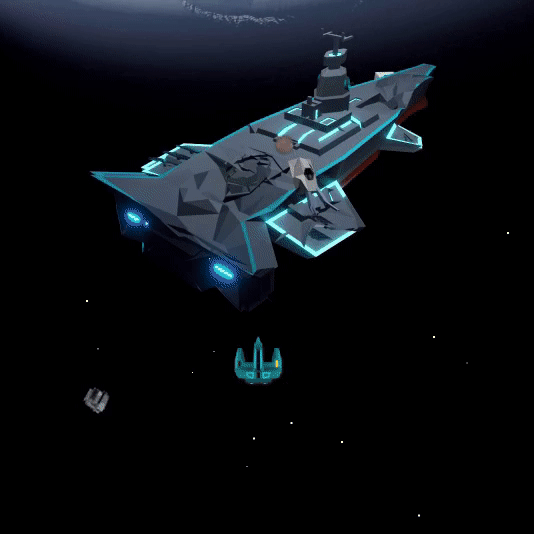Sure do! Here are some of my quick thoughts on it:
- Fairly intuitive. It uses a node-based system like what you would find in Blender or Unreal Engine. You create the nodes you want and connect them to different inputs to make different effects.
- There is a bit of a learning curve. There are tons of variables you can adjust. Yet most of the time there are only a handful that you'll be dealing with.
- I haven't done it yet, but you can also export your Embergen files to Blender and use them there.
- A huge selling point for me was that it has a bunch of pre-made templates. So if you need an explosion effect, you can find one that's close enough and then tweak it to your needs.
- There is an annual subscription, but I find it pretty reasonable ( I say this as a solo dev who doesn't have a huge gamedev budget). Initially it's like $300/yr and then every year afterwards it's only around $160/yr. There is also a free trial you can take advantage of.
- Below is an explosion I made using Embergen:

Keep a to-do list. Any time you think of something you want to add or fix but can't do it right away, write it down, or create an issue in your repository. Come back to it when you're ready and check it off. Not only is this a good way to keep track of what needs doing, but checking things off is satisfying and good for motivation. You'll also waste less time thinking "what should I work on next?" because you'll always have plenty of answers right at hand.
Also, one very underrated game development tool is pencil and paper. If you are stuck on a design or math problem, or just need to brainstorm content ideas or draft a new level, try stepping away from the computer and sitting down somewhere else to work it out on paper. I like to sit on my bed with a clipboard. I find this to be the most intuitive way to work through my thoughts and decide on an approach. Scribbling on paper is much more free-form than working in Notepad or Excel, and it removes all the distractions of your code and development applications.
I also often do this when designing new enemy sprites or certain other kinds of art. I like to sketch the image by hand with drawing pencils, then scan it in and use the sketch as a basis for the pixel art. I get better results this way than trying to pixel from scratch. For my current project, a dungeon crawler, I always design and annotate levels on grid paper first. The maps for this game are too complex to just freehand in Unity and expect them to turn out well.
Have fun. The key to staying motivated on your game project long term is to make a game that you want to play. Don't let others kill your motivation by suggesting game mechanics and features that you're just not interested in.
I want to expand on this, because it's important to look at feedback the right way. I use two rules of thumb:
1) When it comes to things like accessibility, usability, clarity of instruction, interface design, display and input compatibility, and things like that, listen to your users. That doesn't mean you have to do everything they say, but you should at least pay attention to it, because user experience tends to be a big blind spot for developers. You understand your application inside and out, but your players don't. It's also natural to design around our own capabilities and not fully consider what others need or prefer.
2) When it comes to mechanics, gameplay design, writing, art style, and so on - all the creative aspects - consider feedback carefully. Ask yourself "is this actually a weak spot that I can improve on?" or "if I make this change, will it bring me closer to my design goals, or not?" If the answer is yes, then it's probably a good idea. If the answer is no, you should probably ignore it. It's your game, so make it the way you want. That doesn't mean that all of your own ideas are automatically the best ones, it just means that you need to filter out feedback that won't help you achieve your goals.
Coming from a UX perspective, one anecdote I’ve often heard is that users are great at finding problems, but not at solving them. Sometimes if you get an unwanted suggestion a lot it’s a sign that something should be done but necessarily what’s being asked for, and trying to dig into the why behind suggestions can be a good way to find a solution that matches your creative vision.
My best tip to all of you is get an Unreal account, and a Unity account. Via Unreal Engine 4 and 5, free assets are offered each month on their Marketplace. First Tuesday of every month, is Unreal Tuesday. There's always something worth looking out for, that may make your game demo, or full game, that much better. Unity may have something similar for free monthly assets, but I don't use my Unity account as often. Enjoy.